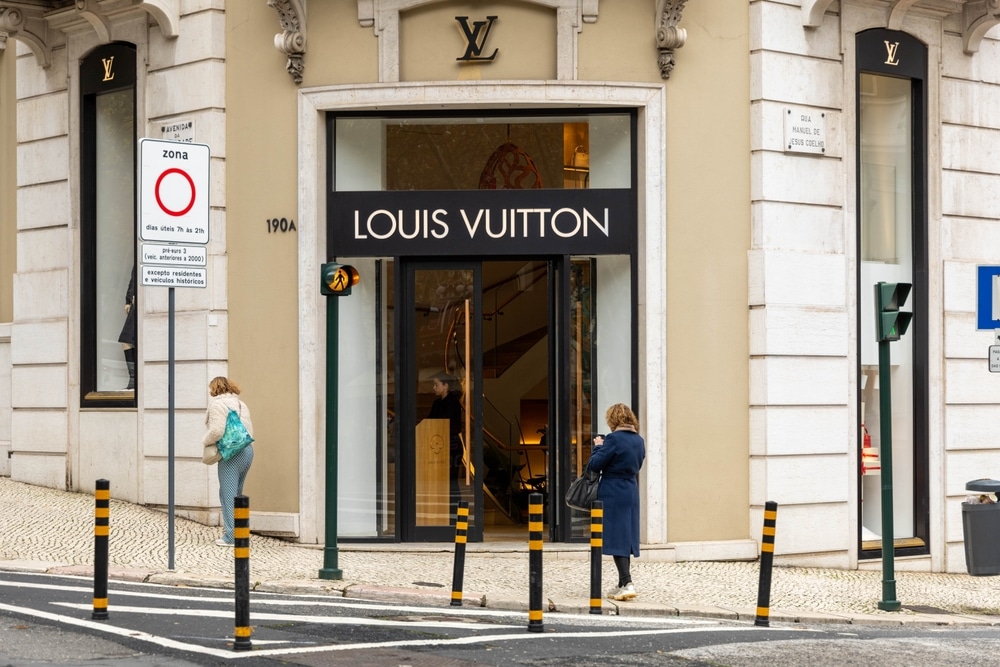In a stark reminder that no brand is too iconic to be vulnerable, Louis Vuitton UK has confirmed a recent cyberattack that resulted in the theft of sensitive customer data. The incident, reported on July 2, shines a spotlight on a growing pattern of cybersecurity threats plaguing luxury retailers—even those with the deepest pockets and most prestigious reputations.
What Happened?
According to the British division of LVMH Moët Hennessy Louis Vuitton SE, hackers gained unauthorized access to customer information including:
Full names
Contact details
Purchase histories
Thankfully, no financial information (such as bank or credit card details) was compromised. In emails sent to affected customers, Louis Vuitton emphasized that there’s no current evidence of data misuse, but they warned that attempts at phishing, fraud, or other unauthorized uses could follow.
The company has since reported the breach to the Information Commissioner’s Office (ICO) and is cooperating with regulatory authorities.
Editor’s Note: These types of notifications are no longer rare—but they’re still jarring. The emotional toll on consumers, particularly in luxury segments where trust is integral, can be significant.
Not an Isolated Case
This is not the first time LVMH has been hit. In fact, this marks the third data breach within a few months:
Louis Vuitton Korea disclosed a similar breach just a week earlier.
Christian Dior Couture, also part of the LVMH group, suffered a cyberattack back in May.
The timing and repeated targeting suggest a pattern of vulnerabilities across the LVMH digital infrastructure—raising questions about how robust their cybersecurity framework truly is.
Meanwhile, other high-profile UK retailers such as Marks & Spencer, Co-op, and Harrods have also fallen victim to cyberattacks in recent months. British authorities, including the National Crime Agency, have arrested four individuals linked to the growing wave of digital crime—one that has already cost companies like Marks & Spencer over £300 million ($405 million) in damages.
Why Are Luxury Brands Targeted?
Cybercriminals are drawn to luxury retailers for one primary reason: high-value data. Shoppers who engage with luxury brands typically offer a goldmine of personally identifiable information (PII), including full contact profiles and transaction histories. Even without direct access to financial credentials, this data can be leveraged for identity theft, social engineering scams, and phishing schemes.
Moreover, some retailers rely on legacy systems that may not be well-equipped to counter modern attack strategies, making them attractive targets.
Consumer Insight: Trust and exclusivity are core to luxury branding. When data is breached, it’s not just a security failure—it’s a brand betrayal in the eyes of loyal customers.
Louis Vuitton’s Response
Louis Vuitton has pledged to conduct a full investigation and implement stricter safeguards across its digital infrastructure. In their customer communication, the brand apologized for the incident and reiterated its commitment to data security and transparency.
While concrete details about how the breach occurred remain undisclosed, the company is urging customers to stay alert and take precautionary steps.
What You Can Do to Stay Safe
If you’re a customer of Louis Vuitton—or any brand that stores your information—here are essential steps to protect yourself:
Change your passwords immediately, especially if reused across accounts.
Enable two-factor authentication (2FA) wherever possible.
Beware of suspicious emails pretending to be from Louis Vuitton or similar luxury retailers.
Monitor your bank and email accounts for unusual activity.
Consider credit monitoring tools to detect unauthorized use of your identity.
Pro Tip: A breach may not cause immediate harm—but the data can circulate quietly and reappear in fraud attempts weeks or even months later. Stay proactive.
Final Thoughts: Trust, Tested
In an era where digital interactions are as common as in-store ones, data is currency—and for retailers, protecting it is non-negotiable. This incident is a wake-up call, not just for LVMH, but for the entire fashion and retail sector.
Consumers, meanwhile, must adopt a defensive posture. Cybersecurity is no longer just the company’s responsibility—it’s a shared one. And as glamorous as a shopping experience may be, privacy is always the most valuable item in your cart.
Image Source: PixelBiss / Shutterstock





















